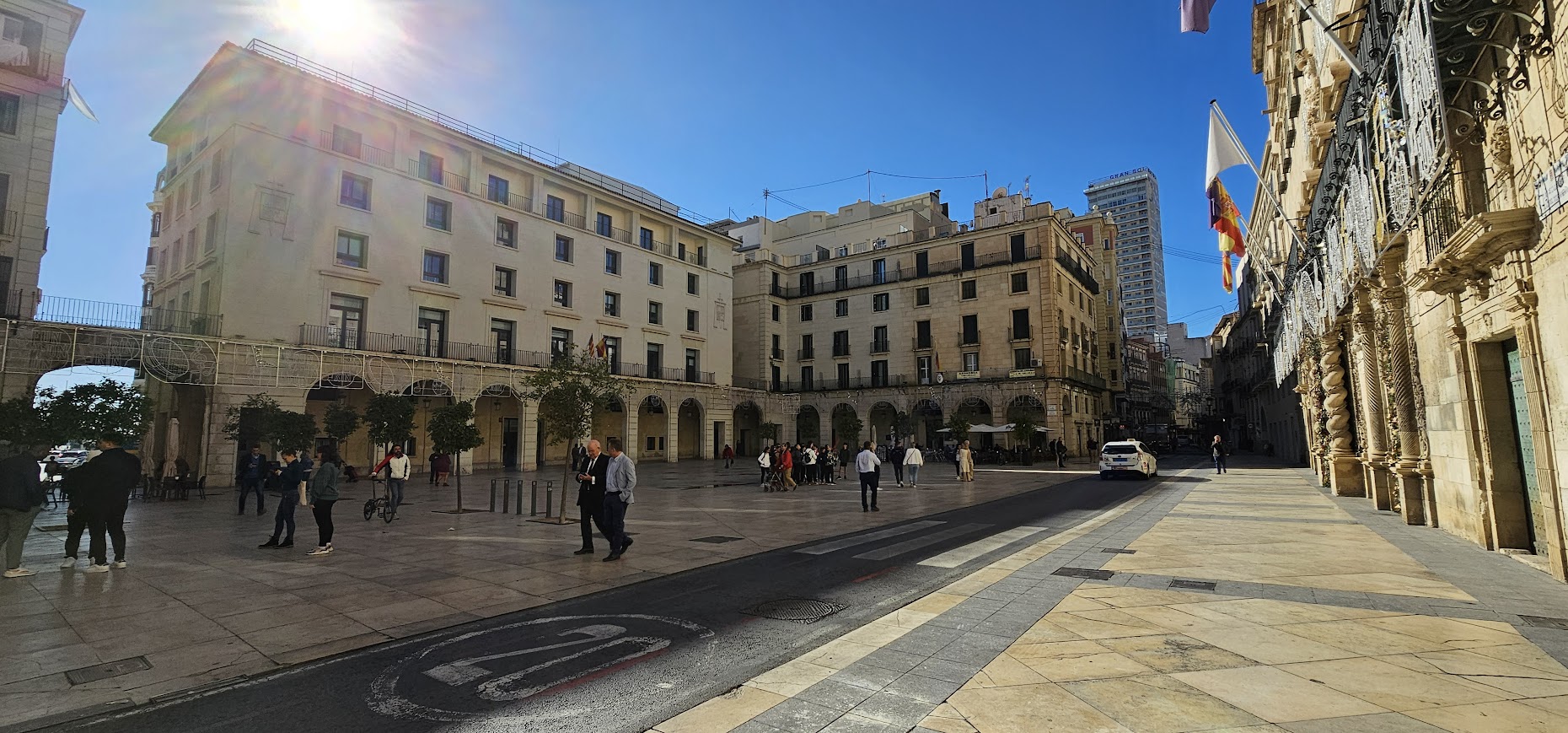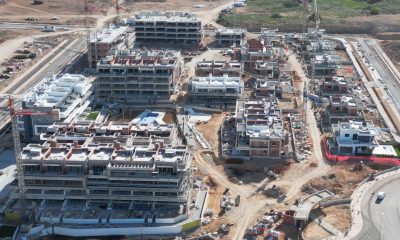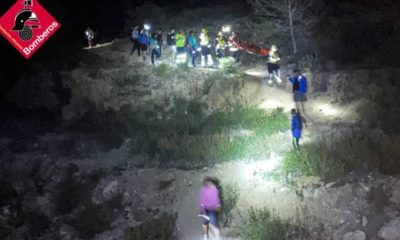Costa Blanca
Nearly 900 vacation rentals have had their licenses revoked by Generalitat Valenciana, with Alicante being the most severely hit

The first 886 vacation rentals that lacked the necessary registration have been removed by the Generalitat Valenciana’s Tourism Registry. As part of an updating process that includes the 101,200 residences registered until December 2024, 800 of these homes are owned by the province of Alicante.
The primary cause of these properties’ removal from the Register, according to sources from the Ministry of Industry, Innovation, Trade, and Tourism, is that they do not have an NIF or NIE, which has caused the system to remove them. The remaining properties—roughly 26,000 in total—that lack a cadastral reference will be added to the process.
Properties that have been deregistered yet still rent out to tourists may be subject to penalties from the appropriate authorities.
A third of the 803 deregistered residences in the province of Alicante are in Benidorm, 55 are in Castellón, and 28 are in Valencia, according to the data presented. According to Marián Cano, the regional minister for tourism, this procedure is a part of the first stage of a comprehensive evaluation that will look at over 34,000 vacation houses overall.
The significance of Valencia’s Tourism Registry for lodging for visitors
A vital instrument for the tourism industry, the Tourism Registry offers vital data that enables the administration to perform a number of tasks required to guarantee the industry’s proper operation.
What does unsubscribing from the register mean?
It is crucial to remember that any apartments that are deregistered with the Generalitat Valenciana are no longer able to serve as lodging for tourists. They risk penalties for failing to comply with existing regulations if they keep operating without a registration.
Updating crucial information
The essential need for current information on lodging for tourists has been recognised by the General Directorate of Tourism. Electronic communications and the completion of administrative procedures are complicated by the absence of crucial information, such as the owners’ tax identification number, phone number, and email address.
The information in the Tourism Registry must be kept current and adhere to the standards set by the relevant authorities in order to prevent issues and guarantee appropriate administration.
Discover more from Costa Blanca Daily
Subscribe to get the latest posts sent to your email.
Costa Blanca
Man who held and beat his ex-partner in Torrevieja to be tried on Thursday

The man who is accused of restraining his ex-partner in a Torrevieja residence for hours and striking her on the head and stomach will be put on trial on Thursday.
At approximately 11:00 p.m. on November 1st, 2023, the incident happened. After a two-year relationship, the defendant accosted his ex-partner on the street. He secured a cloth sack over her head, covered her mouth, and coerced her into a vehicle operated by an unidentified individual. The vehicle was to transport her to a residence in a nearby housing development.
Upon his arrival, he confined her to one of the house’s rooms and spent the night repeatedly entering and exiting the room in an attempt to physically assault her. The woman was able to escape from the residence at 2:00 p.m. the following day.
The Prosecutor’s Office is requesting an eight-year prison sentence for the offences of unlawful detention, assault, and threats. The trial is scheduled to commence at 9:30 a.m. in Section 1 of the Alicante Provincial Court on Thursday, May 8th.
Discover more from Costa Blanca Daily
Subscribe to get the latest posts sent to your email.
Costa Blanca
Three-year-old boy injured after being attacked by a dog in Orihuela

In the Orihuela district of La Murada, a three-year-old child sustained multiple facial and back injuries as a result of a dog attack.
The incident occurred at the intersection of Calle Antonio Balaguer and Camino de los Almendros slightly after 2 p.m. on Saturday, May 3rd.
The child and his mother had gone to their neighbour’s house across the street to eat and spend the afternoon when the dog emerged from the garage and “hooked” the child, according to witnesses.
The family members’ prompt action in separating the large, mixed-breed dog prevented “a tragedy,” as per the same sources.
It appears that the neighbours have encountered comparable hazardous circumstances in the past; however, they have not culminated in an attack, as they have in this instance, despite the numerous warnings they have issued to the proprietor.
The site was attended to by the local police and Guardia Civil. The SAMU (Safety and Emergency Medical Service) was dispatched by the Emergency Information and Coordination Centre, which received the call at 2:38 p.m. A Basic Life Support unit was mobilised and conveyed the child to the Orihuela health centre upon the medical team’s arrival, as the child appeared to have sustained some scratches.
Discover more from Costa Blanca Daily
Subscribe to get the latest posts sent to your email.
Costa Blanca
Tourist rentals are prohibited in all residential communities

Until recently, any owner was able to convert their property into a tourist flat by obtaining the corresponding regional or local tourist licence. However, this has been altered: Since April 3rd, 2025, tourist rentals are automatically prohibited in all residential communities. Only a specific agreement at a meeting can authorise it.
This is a significant reform of the Horizontal Property Law, as it now grants residents’ associations legal control over this activity. The new Article 17.12, which has entirely altered the previous legal framework regarding tourist apartments, is the critical factor.
What is the new legislation regarding visitor apartments?
The following is established by the new Article 17.12 of the Horizontal Property Law:
“The express agreement that authorises, restricts, conditions, or prohibits the activity (…) will necessitate the affirmative vote of three-fifths of the total number of owners, who, in turn, represent three-fifths of the participation quotas.”
Therefore, without the community’s prior consent, no proprietor will be able to rent out their property for tourist purposes. Only the explicit consent of a qualified majority can lift the comprehensive prohibition.
The primary modification is that the agreement no longer prohibits it, but now permits it.
Tourist rentals were permissible prior to April 3rd, 2025, unless the community agreed to prohibit them at a meeting.
Tourist rentals are prohibited as of April 3, 2025, unless the community explicitly authorises them with the affirmative vote of three-fifths of the total number of proprietors and members. In other words, the burden of proof is reversed: authorisation is now necessary rather than prohibition.
What if there are already tourist rentals in flats?
The reform does not have a retroactive effect. This implies that proprietors who were already legitimately conducting their enterprises prior to April 3, 2025, and who were registered under tourism regulations, are permitted to continue doing so. This clause is specified in the second supplementary provision of the law.
Nevertheless, the community may also consent to a surcharge of up to 20% on common expenditures for those homes, as a form of compensation for the increased use of common areas, with a 3/5 majority.
What is the function of the bylaws of a neighbourhood community?
The constitutive document or the community statutes are indispensable. This prohibition is fully enforceable and remains in place if they already contain a clause that expressly prohibits tourist use or any commercial activity, as confirmed by the Supreme Court in rulings of 2023 and 2024.
The community can also stop the activity immediately if the statutes change the usage regime, even without new ballots.
What happens if a landowner disregards the regulations and rents out their property without authorisation?
In that event, the community is entitled to request that the activity be ceased. The president, any proprietor, or even an affected occupant may initiate the procedure. If the offender persists, the community may pursue legal action.
Is there any additional requirement for renting a property for tourist purposes, in addition to community approval?
The owner is still required to acquire the appropriate tourist licence in accordance with regional or municipal regulations, although the community has authorised the activity. This administrative permit is essential, but it is insufficient to initiate the activity; community authorisation is required.
Discover more from Costa Blanca Daily
Subscribe to get the latest posts sent to your email.
-

 Costa Blanca2 weeks ago
Costa Blanca2 weeks agoCatral Local Police car ends up upside down after accident
-

 Costa Blanca1 week ago
Costa Blanca1 week agoBenidorm studies the temperature of its streets to understand “heat island effect”
-

 News2 weeks ago
News2 weeks agoThe Generalitat presents the road map for the widening of the CV-95 between Orihuela and Torrevieja
-

 Costa Blanca2 weeks ago
Costa Blanca2 weeks ago44% of homes in Alicante province were purchased by foreigners
-

 Costa Blanca1 week ago
Costa Blanca1 week ago‘Cartagena’, the new electric Navy ship
-

 Costa Blanca1 week ago
Costa Blanca1 week agoFour minors arrested for smuggling drugs on a school trip
-

 Costa Blanca1 week ago
Costa Blanca1 week agoAlicante port gets an electric boat for cleaning the water surface
-

 Costa Blanca1 week ago
Costa Blanca1 week agoCompetition on Spain’s railways is driving down prices










